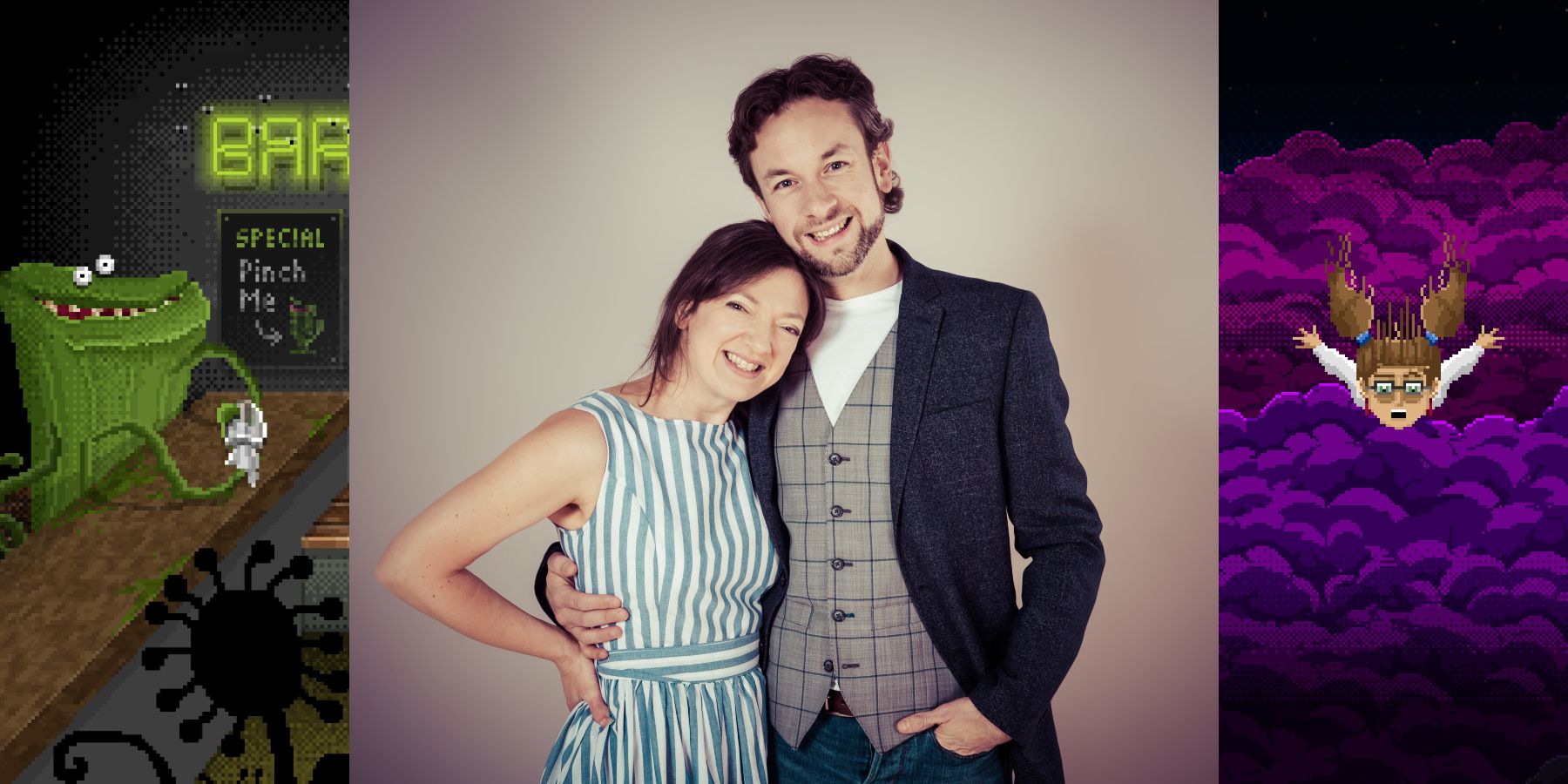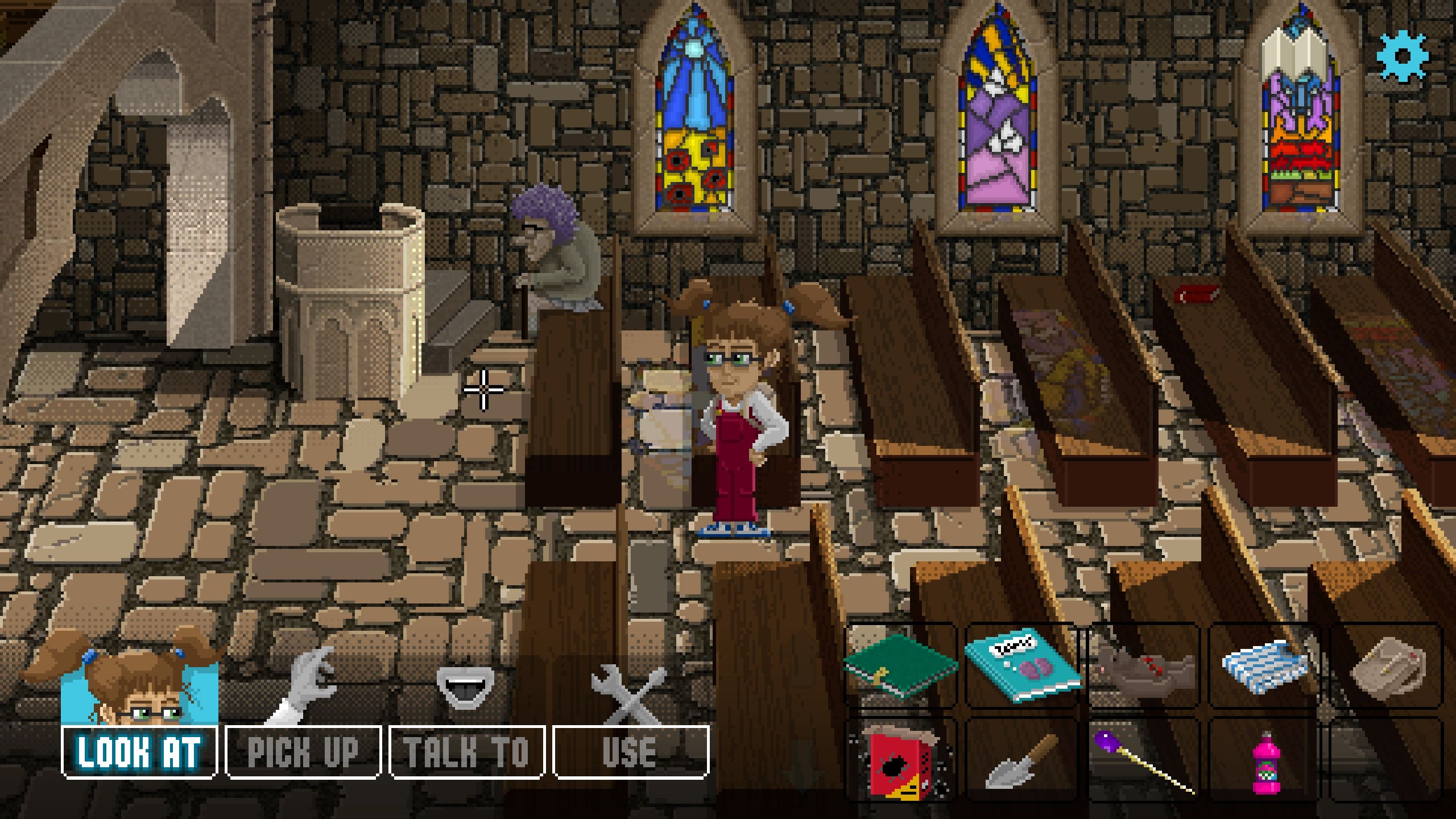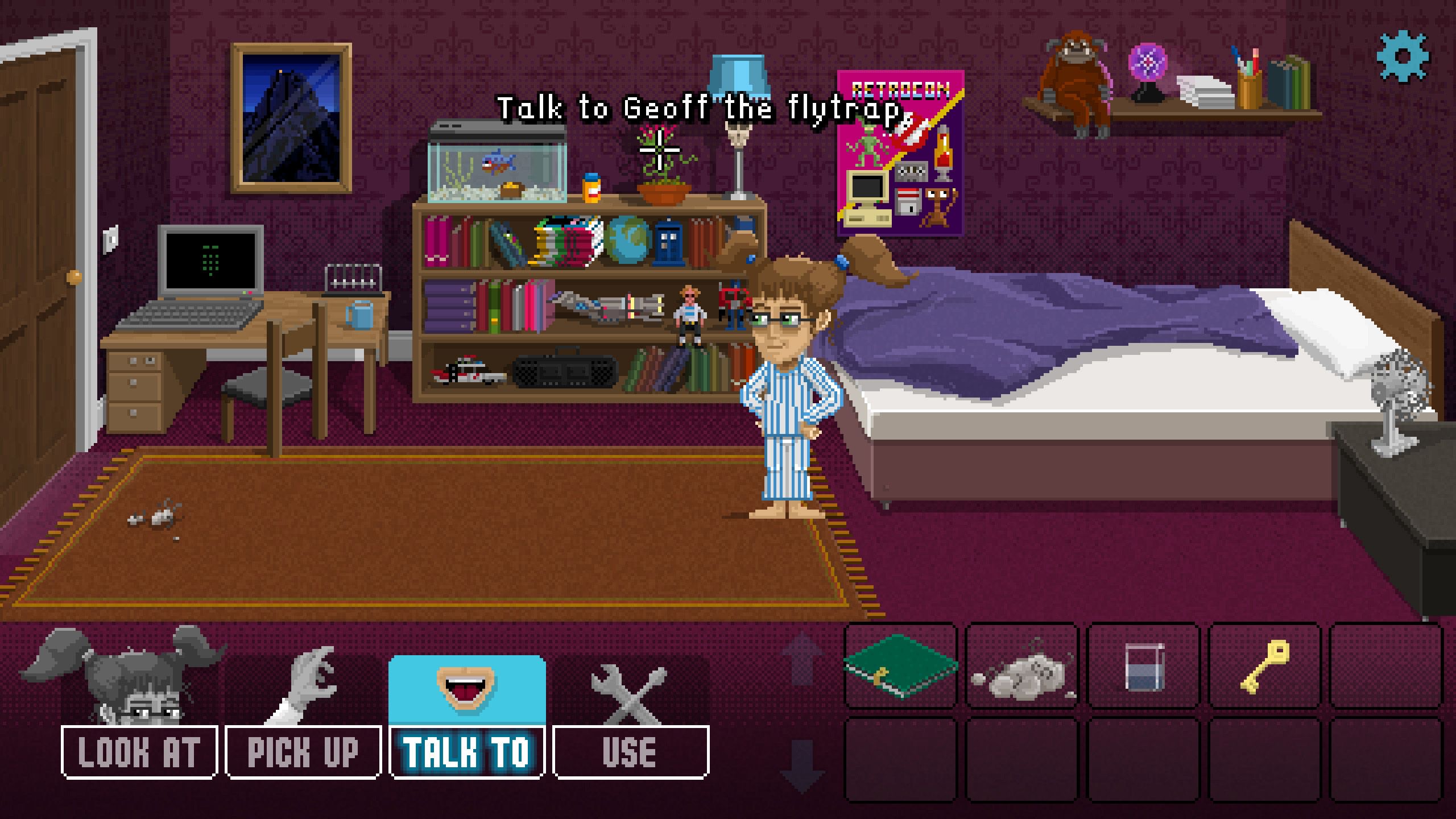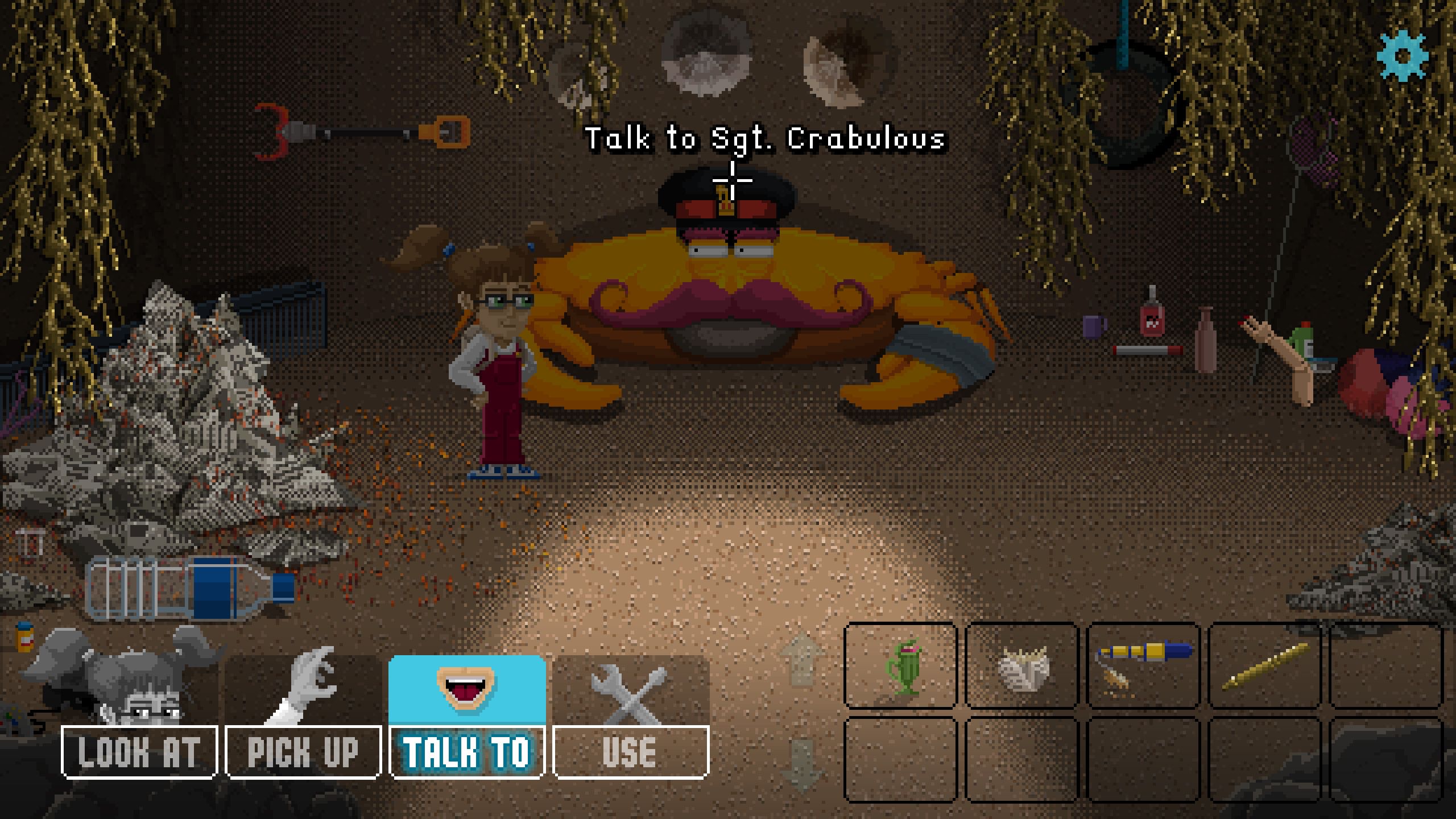Blockbuster video games often require hundreds of employees working upwards of five years, and the fruits of their labor show through successful launches like God of War Ragnarok or Elden Ring. However, it's just as common to see indie games developed by small teams flourish - some tracing their roots back to one person, like Eric Barone's Stardew Valley. Lucy Dreaming, a point-and-click adventure game released in October 2022, was principally developed by Tom Hardwidge; his wife Emma serving as director of their studio Tall Story Games. In her own words, Emma is responsible for "turning Tom's love into something that's going to make some money."This two-person operation is inspired by classic LucasArts titles like Monkey Island. In fact, Lucy Dreaming boasts the voice work of Guybrush Threepwood himself, with Dominic Armato signing onto the project before it was announced he would participate in Return to Monkey Island. However, unlike many indies developed by small teams, Lucy Dreaming comes from a duo that aren't really gamers in their day-to-day life. Game Rant spoke to Tom and Emma about how they came together, adapted to the COVID-19 pandemic, and learned the ropes of game design.
Tall Story Games was Born Out of a Magical Love Story
Well before they developed point-and-click adventures, Tom and Emma studied animation at Wales' Wrexham Glyndwr University in the early 2000s. Tom found he didn't enjoy the major and switched to media design, so later Emma moved in with his former roommates. Exhausted after a long week of school and work as an assistant art director at HOT Animation (creating props for shows like Bob the Builder and Pingu), Emma considered skipping their Halloween party. That changed when "Magic Tom" showed up at the door, then-renowned for his card tricks.
They stayed in touch, commuting between London and Manchester for a few years as both worked at different ad agencies (with overlap at firms like McCann). They eventually got married and took advantage of their joint advertising experiences to establish Considered Creative in 2010. That business is ongoing, run out of their home in Shropshire, England where they are also raising an eight-year-old son.
One of Considered Creative's clients, The Roman Baths Museum, was looking to run something interactive on its website. Tom's only experience with game development had been Flash-based puzzles or quizzes appearing in online banner ads, but he took a shot at pitching a LucasArts-style game with interactive scenes comparable to Ace Attorney. As the clientele was of a similar age to be nostalgic for titles like Day of the Tentacle, they signed off on a three-month budget.
"At this point I'd never heard of game engines, as far as I knew independent developers and homebrew games didn't exist. I figured the old adventure games I used to like had dried up. So I went with the web technology I knew and built an HTML and JavaScript-based engine."
The COVID-19 Pandemic Shifted Priorities
Where's My Cloak? went live in 2019 and is still accessible through The Roman Baths' website. Though Tom feels he would be "horrified" to look back at its cobbled-together code, that web-based "engine" offered a framework to develop Lockdown - a comedic take on balancing work and parenting duties under COVID lockdowns in the UK. It was clearly personal experience brought to life, but Tom decided to put the game out on a dormant Twitter account. It just so happened he shared Lockdown in the aftermath of an adventure game jam, so it reached a "community of nerds like me."
The Hardwidges quickly realized how little they knew. "The learning curve has been straight up," Tom said. "Learning the tools, but also how it's a completely different business model than we're used to in marketing." Beyond a spattering of Legend of Zelda games through the GameCube era, Tom stopped gaming during University, and even today owns little more than a SNES, Game Boy, and Wii. The couple learned what Twitch was after streamers picked up Lockdown, which led to other apps like Discord.
Meeting indie adventure game devs also led to the discovery of software like Visionaire Studio, a specialist point-and-click game engine that Tom said "instinctively felt intuitive." But of course, much simpler to use with more advanced payoffs. This spurred the decision to try and make a full game.
How the Hardwidges' Son Inspired Lucy Dreaming
While Tom always wanted to make an adventure game, it wouldn't be as simple as taking three months to cobble together an hour-long educational experience - especially as he took on artwork, game design, writing, and development alone. Emma suggested they go all-in, establishing Tall Story Games in November 2020.
"I said if we're going to do this, we've got to do it properly and make a business out of it. We're going to lose you for weeks, months, years."
The concept for Lucy Dreaming came early, even if Tom says it has evolved considerably through the process (whereas he is "free-flow" and organic, Emma would have spent five years worrying about nailing down an idea). He didn't want to stick with any one genre, knowing his gap in gaming knowledge would bump against something he hasn't played - or risk comparison to a monolithic franchise like Monkey Island.
Instead, he went with dreaming to visit a multitude of strange worlds that could affect real life and vice versa. The "initial spark" was their son's vivid, contextual dreams based on bedtime stories, which could go so far as to combine stories about disparate subjects like owls and sausages. "It was like, could we somehow craft his dreams?" Tom said. Still, he did research into fellow indie games like The Dream Machine and chatted with Phil Fortier about Snow Spirit to avoid "stepping on anyone's toes."
From Non-Gamer to Successful Game Dev
On Emma's insistence that Lucy Dreaming would have to pay for itself, the Hardwidges spent over half a year building their online presence for a Kickstarter campaign - during which time Tom created Hair of the Dog to practice with Visionaire, learn "convoluted" storefronts like Steam, and try porting between PC and mobile. Launching in April 2021, the Kickstarter raised over 25,000 Euros on its 15,000 goal, hitting enough stretch goals to receive a German translation. "Adventure games are very big in Germany," Tom said.
Lucy Dreaming's nostalgic pixel art style and Monty Python-inspired humor (Tom naturally views the world "through a slightly sarcastic lens") attracted a 100-percent positive rating on Steam (out of 107 reviews, as of this writing). It also got the attention of veterans like Ron Gilbert, whom Tom had the "surreal" experience of talking to about success metrics on Thimbleweed Park ahead of Lucy Dreaming's Switch release later this month.
The next project to come out of Tall Story Games is being discussed, but Tom and Emma are intent on going with another point-and-click adventure (in-part because they understand the value of brand recognition). There's hope it will be an easier endeavor now that they aren't starting from scratch, but for now, they'll be enjoying the satisfaction of getting a project to completion.
"Recently I sent my brother a key for Lucy, and he sent me a photo of it downloaded on his Switch ... to either side was Mario and Zelda. Like, my god! That's amazing. Having it appear in the same menu as things I grew up loving - that's insane."
Lucy Dreaming is available now on Mobile and PC, with a Nintendo Switch port releasing on February 28, 2023.




